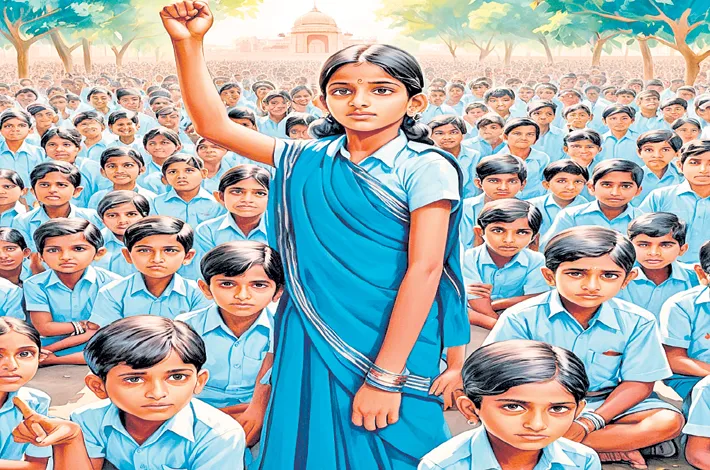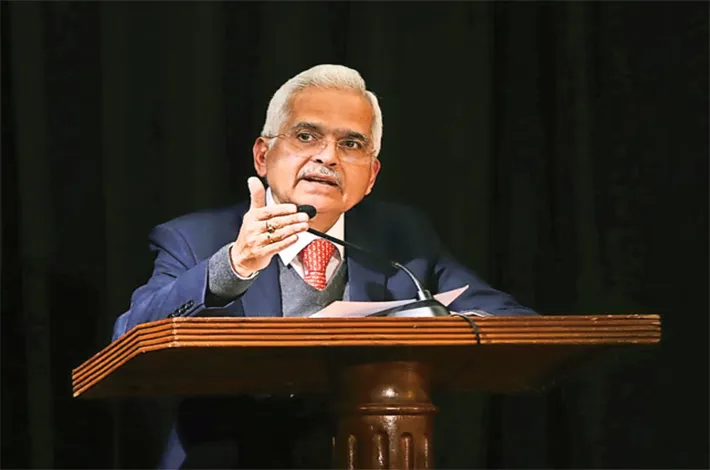The Imperative of Inculcating Patriotism in Indian School Children
08-05-2025 12:00:00 AM

While fostering patriotism is vital, it must be done with care to avoid fostering jingoism or intolerance. Patriotism should not be equated with superiority over other nations or communities. The education system must emphasize that loving one’s country does not mean disparaging others.
Teachers should encourage critical thinking, allowing children to question and understand the complexities of India’s past and present, including its challenges like poverty or social inequities. This balanced approach ensures that patriotism is inclusive and constructive
Patriotism, the love and devotion to one’s country, is a sentiment that binds citizens to their nation, fostering unity, pride, and a commitment to its progress. In a diverse and dynamic nation like India, with its rich history, cultural mosaic, and ongoing developmental challenges, instilling patriotism in school children is not just desirable but essential.
The formative years of a child’s life offer a unique opportunity to nurture values that shape responsible, engaged citizens. By embedding patriotism in the education system, India can cultivate a generation that is deeply connected to its roots, respects its diversity, and is motivated to contribute to the nation’s growth. This article explores the need for inculcating patriotism in Indian school children, its significance, and practical ways to achieve it.
The Importance of Patriotism in a Diverse Nation
India is a land of unparalleled diversity—linguistic, cultural, religious, and ethnic. With 28 states, over 1,600 languages, and a history spanning millennia, the country thrives on its unity in diversity. However, this diversity can also pose challenges, such as regionalism, communalism, or social fragmentation. Patriotism serves as a unifying force, transcending differences and fostering a shared sense of identity. For school children, learning to value their country as a collective entity helps them appreciate the contributions of every community, region, and culture to the Indian narrative.
Patriotism also instills a sense of responsibility. Young minds, when taught to take pride in their nation, are more likely to engage in civic duties, respect public institutions, and contribute to societal welfare. In a country grappling with issues like corruption, environmental degradation, and inequality, a patriotic citizenry is crucial for driving positive change. By nurturing this sentiment early, schools can lay the foundation for a generation that views nation-building as a personal mission.
Addressing Contemporary Challenges
In today’s globalized world, Indian children are increasingly exposed to international cultures, media, and ideologies. While this exposure broadens their horizons, it can sometimes dilute their connection to their own heritage. The allure of Western lifestyles or the influence of social media may lead to a disconnect from Indian values, history, and traditions. Inculcating patriotism counters this by grounding children in their cultural and historical context, helping them take pride in India’s achievements, from ancient contributions in mathematics and science to modern strides in technology and space exploration.
Moreover, India faces external and internal challenges that require a united front. Geopolitical tensions, economic competition, and internal issues like separatism underscore the need for citizens who are loyal and committed to the nation’s sovereignty and integrity. Patriotic education can equip children with the resilience and conviction to stand by their country in times of crisis.
The Role of Education in Fostering Patriotism
Schools are the crucible where young minds are shaped. Integrating patriotism into the curriculum can be done thoughtfully, ensuring it inspires rather than indoctrinates. The goal is to foster a genuine love for the country, not blind nationalism. Here are some practical ways to achieve this:
-History and Heritage Education: The curriculum should emphasize India’s rich history, from the Indus Valley Civilization to the freedom struggle. Stories of leaders like Mahatma Gandhi, Subhas Chandra Bose, and Rani Lakshmibai can inspire children to value sacrifice and resilience. Visits to historical sites, museums, and freedom struggle landmarks can make these lessons tangible.
-Civic Education: Teaching children about the Constitution, democratic values, and their rights and duties as citizens fosters a sense of ownership. Activities like mock parliaments, debates on national issues, and community service projects can make them active participants in nation-building.
-Cultural Immersion: Celebrating India’s festivals, languages, and art forms in schools can deepen children’s appreciation for their heritage. Events like Republic Day and Independence Day should go beyond flag-hoisting ceremonies to include discussions on their significance and the sacrifices behind them.
-Role Models and Inspirational Stories: Introducing children to contemporary heroes—scientists, athletes, social workers, and soldiers—can show them that patriotism is a living value. For instance, highlighting achievements like India’s Chandrayaan missions or the contributions of the armed forces can instill pride.
-Environmental Patriotism: Teaching children to protect India’s natural heritage—its rivers, forests, and wildlife—can be a form of patriotism. Initiatives like tree-planting drives or clean-up campaigns can show them how to contribute to the nation’s well-being.
Avoiding Pitfalls in Patriotic Education
While fostering patriotism is vital, it must be done with care to avoid fostering jingoism or intolerance. Patriotism should not be equated with superiority over other nations or communities. The education system must emphasize that loving one’s country does not mean disparaging others. Teachers should encourage critical thinking, allowing children to question and understand the complexities of India’s past and present, including its challenges like poverty or social inequities. This balanced approach ensures that patriotism is inclusive and constructive.
The Long-Term Impact
The benefits of inculcating patriotism in school children extend beyond their formative years. Patriotic individuals are more likely to vote, participate in community development, and uphold ethical standards in public and private life. They become ambassadors of India’s values on global platforms, whether as professionals, artists, or diplomats. In a rapidly changing world, where India aspires to be a global leader, a patriotic youth is the backbone of this vision.
Furthermore, patriotism fosters resilience. India’s journey—from colonial rule to a vibrant democracy—has been marked by challenges. A generation that takes pride in this journey will be better equipped to face future obstacles, whether economic, social, or political, with determination and unity.
Conclusion
Inculcating patriotism in Indian school children is not just an educational goal but a national imperative. It is about nurturing citizens who are proud of their heritage, committed to their country’s progress, and respectful of its diversity. By weaving patriotism into the fabric of education—through history, culture, civic engagement, and environmental consciousness—India can ensure that its future generations are not only global citizens but also deeply rooted in their Indian identity.
As the nation strides toward its centennial of independence in 2047, a patriotic youth will be the driving force behind a stronger, more cohesive, and prosperous India. Schools, as the cradles of tomorrow’s leaders, must take up this mantle with urgency and vision.








